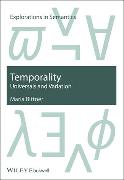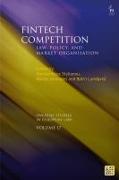Temporality
BücherAngebote / Angebote:
Representing the culmination of fifteen years of research by the author, Temporality surveys the ways in which languages of different types refer to past, present, and future events and how these referents are related to the knowledge and attitudes of those involved in the dialogue.
Four major language types are examined in depth: tense-based English, tense-aspect-based Polish, aspect-based Chinese, and mood-based Kalaallisut. Each contributes to a series of logical representation languages, exemplifying four special cases of a common logical language which, Bittner argues, underlies all language types. The ways in which these four language types differ is in whether they choose to grammaticalize discourse reference to times (tense), events (aspect), and/or attitudes (mood), and how non-grammaticalized elements are inferred.
The common logical language, according to Bittner, is a dynamic update logic, building on DRT and Centering Theory, but with a novel architecture. For example, the distinction between focal vs. peripheral attention plays a key role, parallel to focal vs. peripheral vision. This cutting-edge research is valuable for formal semanticists, philosophers of language, logicians, and computer scientists interested in cross-linguistic formal semantics, dynamic semantics, and direct semantic composition in Categorial Grammar.
Lieferbar in ca. 10-20 Arbeitstagen




